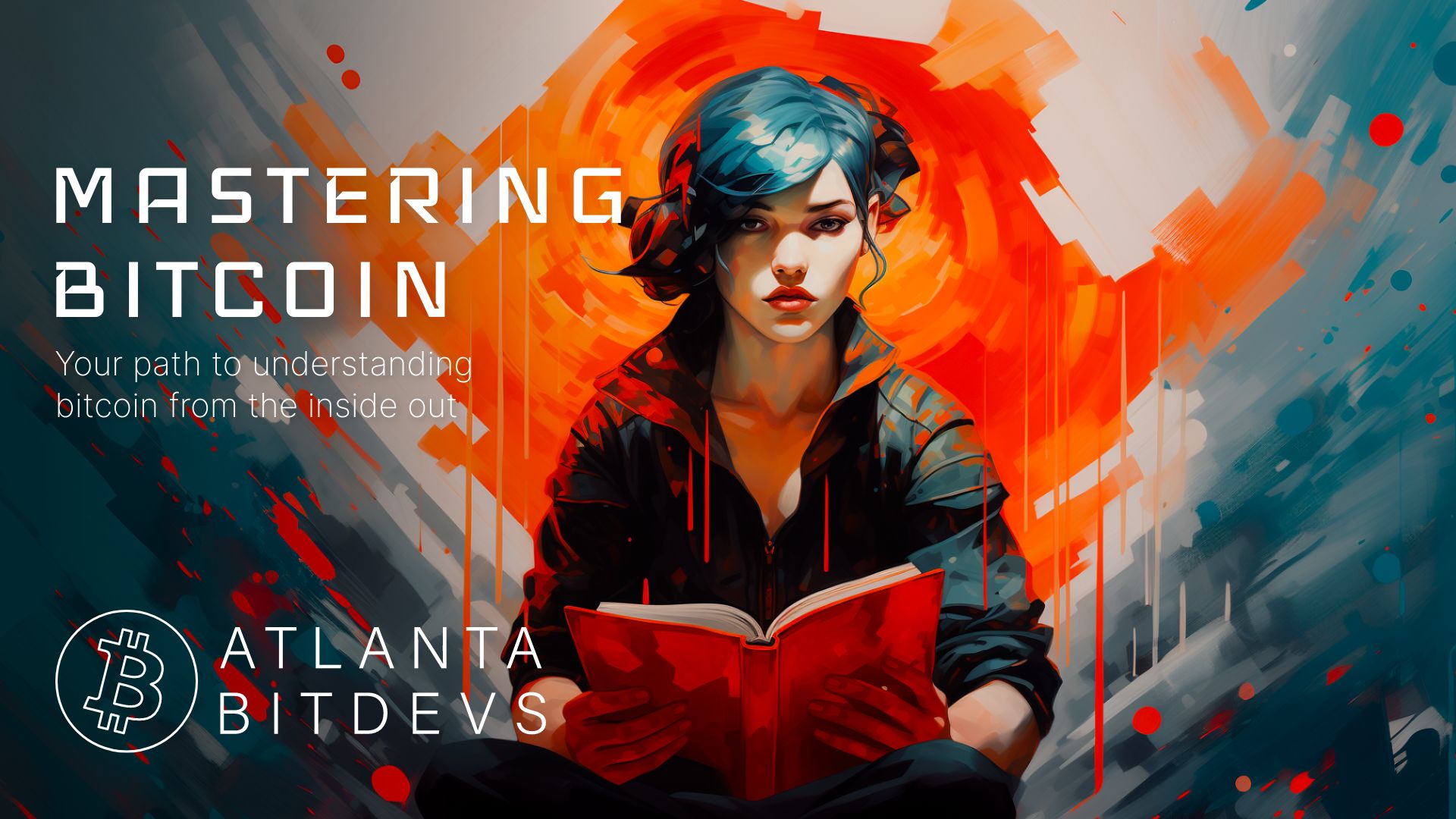
Join our vibrant reading discussion group as we dive into Mastering Bitcoin, the ultimate technical guide to understanding Bitcoin. Perfect for those eager to deeply grasp the intricacies of Bitcoin, this group combines a fun and supportive environment for learning complex technical concepts.
Each week, we'll explore a different pair of chapters, enriching your self-reading experience. We'll provide thought-provoking questions ahead of each session to guide your reading and fuel engaging discussions. Our meetups are not just about discussing the book; they're about building a community of Bitcoin enthusiasts and builders.
Discover, discuss, and delve into the world of Bitcoin with us. Your journey towards mastering Bitcoin starts here!
RSVP for Meetup HereHow It Works
We recommend that you read up on the event format before you attend.
This Session
In this session, Alex Lewin will lead us through a discussion of:
- Chapter 9: Transaction Fees
- Chapter 10: The Bitcoin Network
Study Questions
Chapter 9: Fees
- What is the purpose of transaction fees in Bitcoin?
- How are fees estimated for a transaction before it gets broadcasted?
- How can you calculate the fees of a transaction that has already been confirmed?
- What is Opt-in RBF? What is Full RBF? Why is Full RBF controversial for some people?
- What are vBytes? How does this relate to SegWit and transaction fees?
- What's the purpose of CPFP (child pays for parent)? Why is it important in lightning? How does BIP 331 (Package Relay) affect CPFP?
- Why can fee estimation sometimes produce inaccurate results, and what improvements could be made?
- How does mempool policy relate to fee estimation?
- What is a transaction pinning attack? How is it different when applied to RBF versus CPFP?
- What are Anchor outputs? How is this a solution for transaction pinning?
Chapter 10: Network
- What are nodes in the Bitcoin network, and what roles do they play?
- What's the difference between a "light node", "full node", and "full archival node"? What must a node be capable of to be considered "full"?
- How does a "light node" operate? What are "SPV proofs"? What are the tradeoffs of using SPV proofs in a node?
- What are Bloom Filters? Why are Bloom filters an improvement over SPV proofs?
- Explain why Bloom filters are a "probabilistic data structure".
- Explain the successor to Bloom Filters (Golomb-Rice Coded Sets)? Why is it better?
- How does a new node synchronize with the rest of the network?
- Explain the peer discovery process in the Bitcoin network. What are DNS seeds, and why are they important?
- Discuss the impact of network delays and latency on Bitcoin transaction propagation. How can network performance be improved?
- What's the difference between Low-bandwidth mode and Hight-bandwidth mode in bitcoin core?
- What is the Tor network? How does it relate to bitcoin? Bonus reading: BIP 324